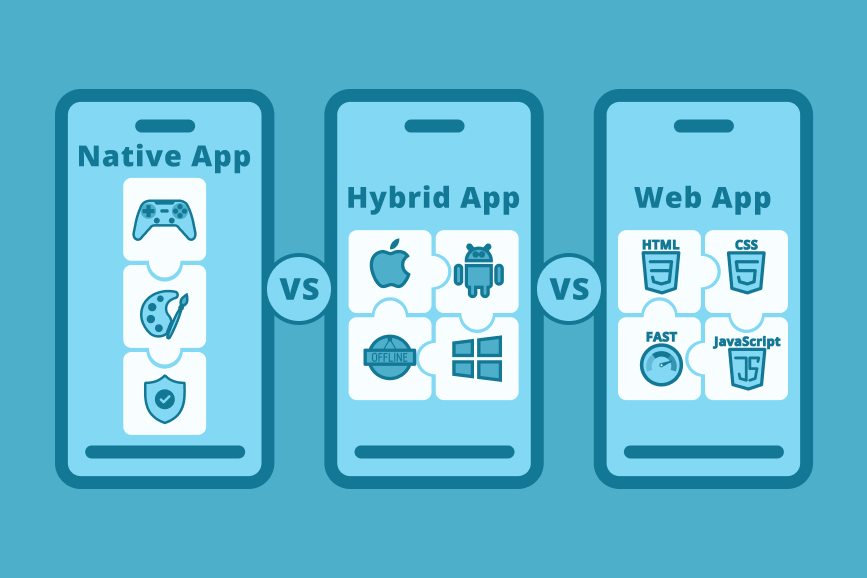A brief description of native and hybrid apps
When it comes to developing native and hybrid apps play a significant role. The native, hybrid, and web apps are the three important types of the app, each having distinctive features.
Native Mobile App
When someone is describing any native mobile apps, the description is usually about any app that has been written with the help of native development language and the tools suited specifically to that platform. The developments of these apps are related to the platform’s default solution; these provide much more comfortable and better access for the developers towards the devices’ capabilities. These can range from anything like the user’s address book; device sensor’s to any recent and better technologies that the device can. The native apps also tend to be better in performance since the code which is used is much more suitable for the application.

This will help the device work faster, but it will also provide the user access to the entire user interface controls and the layouts. The user may try to fit them according to the application’s theme by styling them, but it is also important for the apps to interact and behave just like all the other apps on the platform.
Web Application
The uncertainty regarding the approval of the app by app-store gatekeepers can be regarded as somewhat risky. Sometimes, many stories circulate about a lot of top apps go past the regulations, which results in the removal of those apps from the app store and resulting in a considerable loss of revenue. This is one reason why many developers have started developing web applications that allow the app to stay few app stores and still provide the service to all devices, both mobile and desktop. These web applications are usually written with the help of CSS, HTML, and also JavaScript. It is possible to leverage a lot of libraries and frameworks for these applications, for example, react- native hybrid and ionic app, Vue, or Angolar.
However, there are certain restrictions on the app’s capability towards the mobile browser if one decides to take this approach. This states that the app will not be able to gain full access to some aspects like the address book of the user. Although with improvements, this aspect has seen a lot of growth over the years, like access with the camera and GPS, this can become an issue depending on your web app’s requirements.
Hybrid Mobile App
The solution to the whole thing is a blend of both the native and web application systems. Here, the basic core of the app is created with web technologies like JavaScript, CSS, and HTML; after that, it is encapsulated with a native app. With the help of plugins, the apps can gain full access to all the features.
You can see the clear distinction between native and hybrid apps and which is better for your app requirements.

